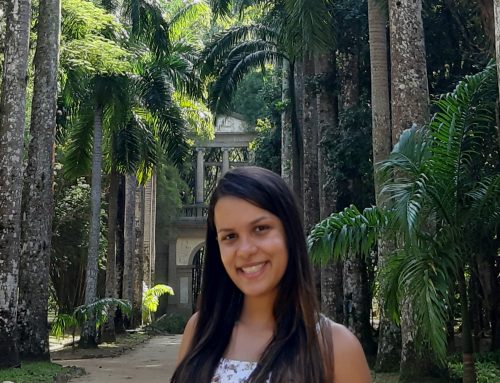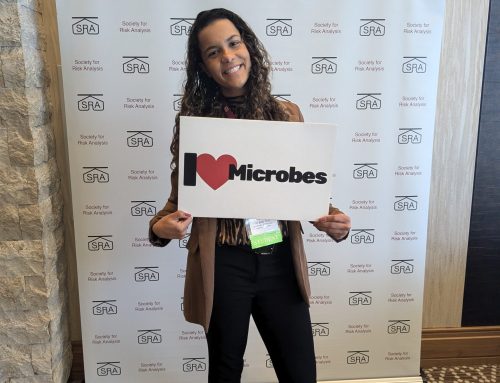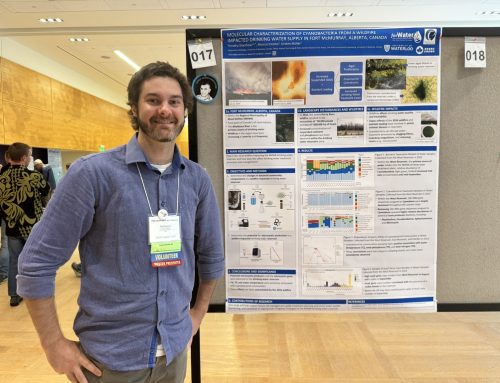Two of University of Waterloo’s graduate students from the Department of Civil and Environmental Engineering, both supervised by Monica Emelko, were recognized this summer by the American Water Works Association (AWWA) for their research. Gemma Charlebois and Andrew Wong are the first and second place recipients, respectively, of the 2017 Academic Achievement Awards for best Master’s thesis.
The AWWA recognizes these theses on the basis of originality, practical application, value to the water supply field, potential value as a reference, and overall clarity.
Gemma Charlebois took first-place with her thesis titled, “Microcystin and Microcystis Destruction by Ozone in Drinking Water Treatment: Constraints and Effects,”which argues that advanced oxidation technologies such as ozonation — the best available technologies to treat the toxins associated with algal blooms — might not be as widely effective as we would hope, especially in watersheds where there are high levels of organic carbon. Working with the Region of Waterloo as well as University of Waterloo biologists Heather Roshon and Kirstin Muller, Gemma was able to culture toxin cyanobacteria in a Grand River Water matrix in the lab — something that is challenging to achieve — reliably and successfully. This allowed her to evaluate drinking water treatment technologies and identify potential risks associated with sub-optimal treatment conditions.

“She deserves tremendous credit for her work,” said Monica Emelko, professor of Environmental and Civil Engineering and Director of the Water Science, Technology & Policy Group. “The cross-campus partnerships that we have at the University of Waterloo that encourage interdisciplinary and collaborative research, played a key role in the success and rigour of Gemma’s research.”
Harmful algal blooms can cause a number of negative effects on people and on the environment. It’s a problem that is increasing globally as the production of toxins is linked with climate change. Some of the risks associated with harmful algal blooms include:
- Severe impacts on human health
- Creating dead zones in the water
- Raising treatment costs for drinking water
- Damaging industries that depend on clean water
Second place winner, Andrew Wong’s thesis titled, “Investigating the Enhancement of Biological Filtration with Capping Material Designs and Nutrient Amendments,” focuses on the technologies in water treatment plants, specifically on biological filtration, which can be used to remove natural organic matter (a precursor to disinfection by-products of health concern) from drinking water. In the last several years, there has been an interest in how to enhance this process to maximize biological activity. Andrew investigated the complexities of biological filtration process dynamics and strategies for process optimization, piloting his work at the Region of Waterloo’s Mannheim Water Treatment Plant.

“Complex water challenges require collaboration in order to solve them,” said professor Emelko. “Working with industry partners like the Region of Waterloo is critical to meaningfully tackling these challenges.”
This is the fourth and fifth time that Monica’s group have won a thesis award at the AWWA. Monica’s notes that all five of her students that have won this award, have all worked closely with the Region of Waterloo – a symbol of the excellent partnership between the University and the Region.
“For us to sweep these awards this year, was an incredible honour,” said professor Emelko. “It demonstrates the strength and importance of our partnerships both within and outside of the university. When you have applied and fundamental science working together, meaningful outcomes can happen for science and society.”





